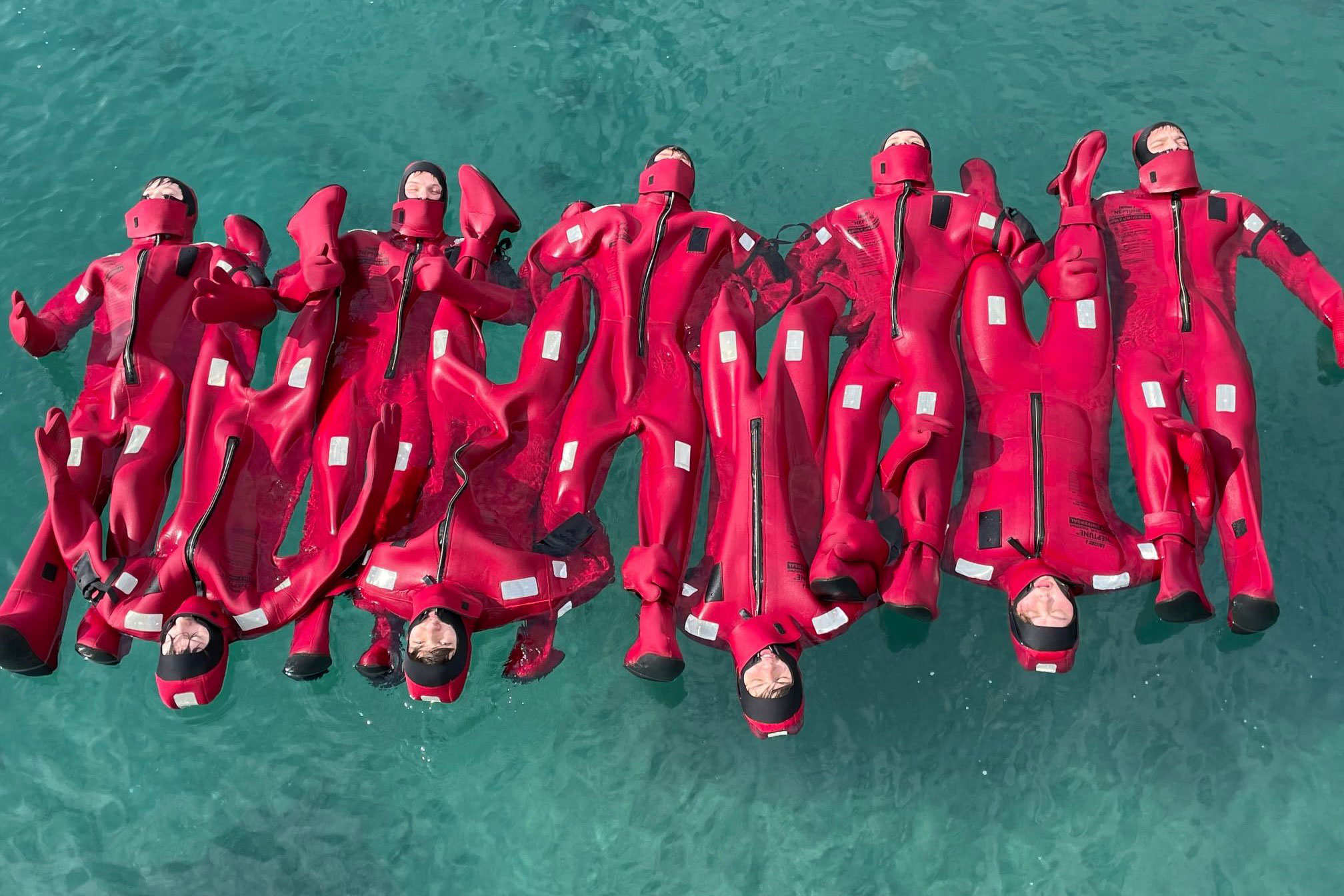
Slovenia has a little less than 50 km of coastline, yet it is important to ensure the continuation of the country’s fisheries. To maintain and continue the trade of fishing, Slovenia needs new and young fishers. It is also necessary to improve knowledge and diversification opportunities for fishers who are already active. With some help from the Istria fisheries LAG, and after decades without any specific training for fishers, the Slovenian maritime secondary school in Portorož had the idea to launch a training programme with a special focus on educating future fishers, of which this project is a part. The objective of the project is twofold: to give students more awareness of the fisheries sector and the opportunities this old trade offers, and to increase their maritime knowledge to create possibilities for diversification, whether through other fishing activities or in the maritime sector generally.
The project targeted fishers and students from the maritime high school, but some participants from the local community also took part in the training. The training has given them competences in search, rescue, and survival at sea, as well as on-board medical care and firefighting. With the help of the existing fishers, the high school students also made trips to sea. This gave them the opportunity to see practical demonstrations of the fishing profession, which they would not otherwise have been able to try. The training also included gastronomic sessions run by local chefs, who taught the students about the importance of local seafood. Together, the students and chefs explored the connections between fisheries and gastronomy, shedding light on new diversification activities for fishers who understand the tastes of their customers.
- Project locations
- Slovenia
- Overall budget
- €226 576
- EU contribution
- €144 44263.8% of the overall budget
- Project website
- Las Istre
Results
So far, 15 future fishers have participated in more than 15 training courses covering all the different aspects needed. The plan is to add many more over the years to come.
Thanks to the purchase of modern equipment such as a navigation simulator for larger vessels and a modern first aid classroom, the participants acquired useful competences through hands-on training. The new equipment purchased within this project will contribute to lifelong learning in the years to come, and hopefully ensure a steady succession from a new generation of seafarers.
Contact
- Organisation
- Gymnasium, electrical and maritime school Piran
- geps
 geps [dot] si
geps [dot] si
Igor Komadina
- Name
- Igor Komadina
- Organisation
- Fisheries LAG
- igor
 sredisce-rotunda [dot] si
sredisce-rotunda [dot] si
